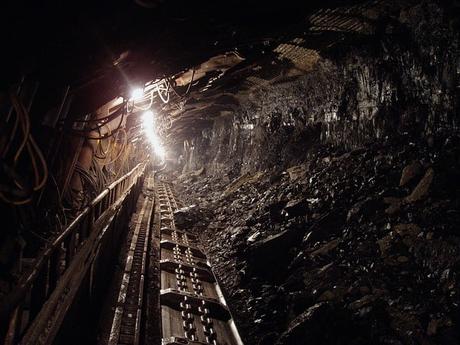Worldwide nations’ Fossil fuel production is on track to produce more than double than that can be burned in 2030 while restricting the rise in the global temperature to 1.5C, analysis shows.
For the first time, the report compared countries’ stated plans for fossil fuel extraction with the Paris climate agreement target, which is to keep global heating well below 2C above pre-industrial levels and to aim for 1.5C. There is a considerable gap, and fossil fuel production in 2030 is heading for 50% more than that is required for 2C and 120% more than that for 1.5C.

According to scientists, even the difference between 1.5C and 2C of heating will compel hundreds of millions of people to face significantly higher risks of extreme heatwaves, floods, drought, and poverty.
The UN Environment Programme and a coalition of research organizations produced the report. It complements an earlier UN analysis stating that the current Paris agreement pledges to reduce emissions would still lead to a catastrophic 3-4C rise.
“We’re in a deep hole – and we need to stop digging,” said Måns Nilsson, executive director of the Stockholm Environment Institute (SEI), which was part of the analysis. “Despite more than two decades of climate policymaking, fossil fuel production levels are higher than ever.”
Inger Andersen, head of the UN Environment Programme, said, most action to tackle the climate crisis involves reducing emissions, but there is hardly any focus on fossil fuel production. The countries that took action pledges under the Paris deal, most of them do not even mention changes to production.
The ‘conspicuous’ example of this mismatch is the UK, said Cleo Verkuijl, at the SEI’s center in Oxford, UK. The UK was the first to commit to net zero emissions by 2050, she said, but at the same time, it subsidizes fossil fuel production at home and abroad to extract “every drop of oil and gas” from its North Sea fields. The UK oil and gas industry has received £176m more annually in recent years in government support than it paid in taxes, the report said.
The UK Oil and Gas Authority said in a statement: “Oil and gas will remain an important part of our energy mix for the foreseeable future, including under net zero scenarios. Maximising the economic recovery from the UK remains vital to meet those energy demands as long as they exist, and to reduce reliance on imports.”
Senior figures strongly backed the report’s warning. “Ensuring a liveable planet for future generations means getting serious about phasing out coal, oil, and gas,” said Christiana Figueres, at Mission 2020 and is the person who delivered the Paris agreement in 2015 as the UN’s top climate official. “Countries such as Costa Rica, Spain, and New Zealand are already showing the way forward, with policies to constrain exploration and extraction – others must now follow their lead. There is no time to waste.”
Prof Nicholas Stern, at the London School of Economics, said: “This important report shows planned levels of coal, oil, and gas production are dangerously out of step with the goals of the Paris agreement.”
The nations that are taking some action, including the closure of most coal mines in Spain and some in China, along with the end of new offshore oil and gas exploration licenses in New Zealand and some parts of the Arctic governed by Canada, the US and Norway, highlighted in the report.
A global agreement to phase out production would be ideal as per Verkuijl. However, in the current scenario, it is difficult as the US President Donald Trump would withdraw the country from the Paris agreement. She noted the promises made by many Democratic presidential candidates to cut fossil fuel production either by restricting extraction on public land or by removing subsidies. Such a candidate will be a “gamechanger” if he beats Trump in the 2020 election.
It was also crucial that workers in fossil fuel industries were helped into new employment as production ramped down, the report said. “Leaders need to [talk with] workers and their unions to plan a just transition away from fossil fuels,” said Sharan Burrow, head of the International Trade Union Confederation.
The analysis was done based on published national plans of eight significant producers like Australia, Canada, China, India, Indonesia, Norway, Russia, and the US, which account for 60% of global fossil fuel production. The researchers assumed the shares of other big producers, including Saudi Arabia and Iran, at around 40% as their plans are not publicly available.
An amendment was made to this article on 20 November 2019 to clarify the description of the methodology. According to researchers, fossil fuel producers such as Saudi Arabia and Iran may avoid following “similar paths” as the eight countries that were covered, but those producers would continue to maintain a similar share of global fossil fuel production like those eight countries.

